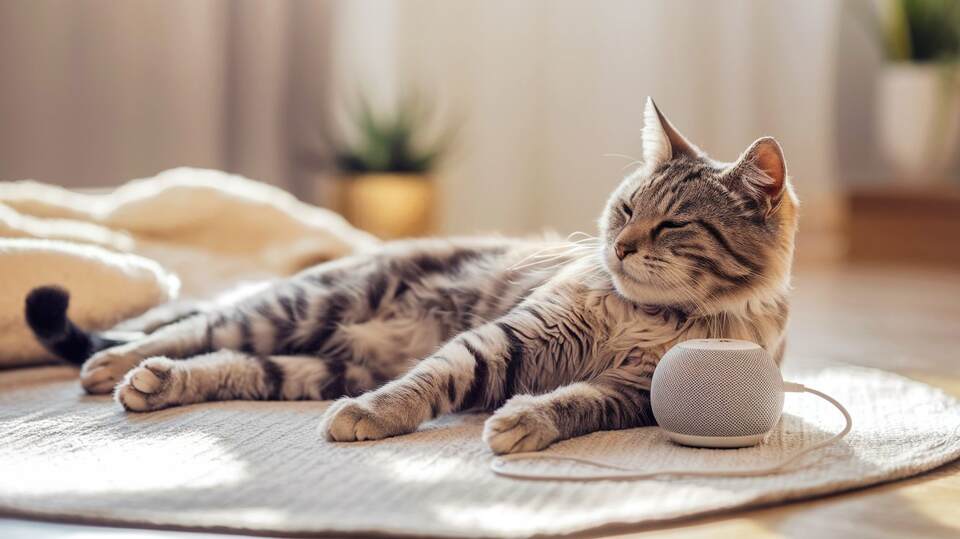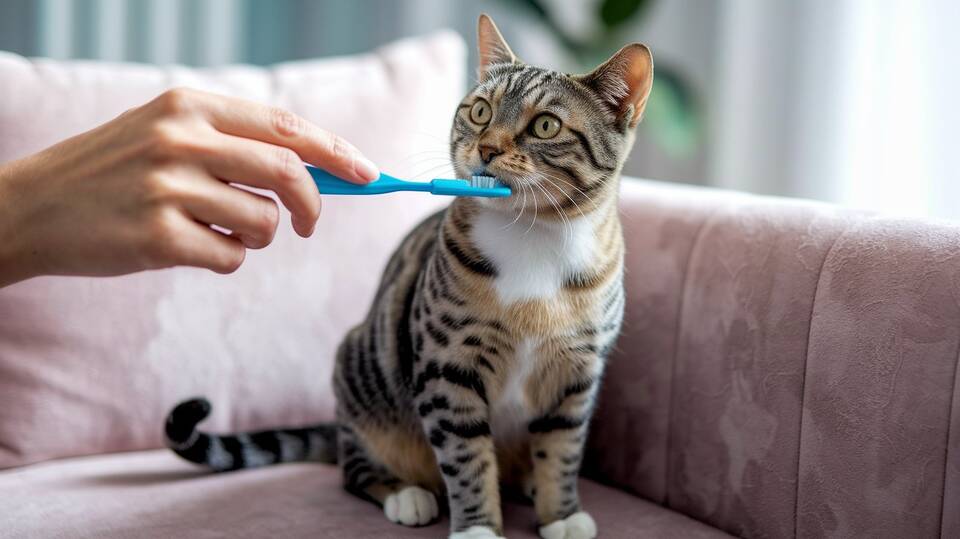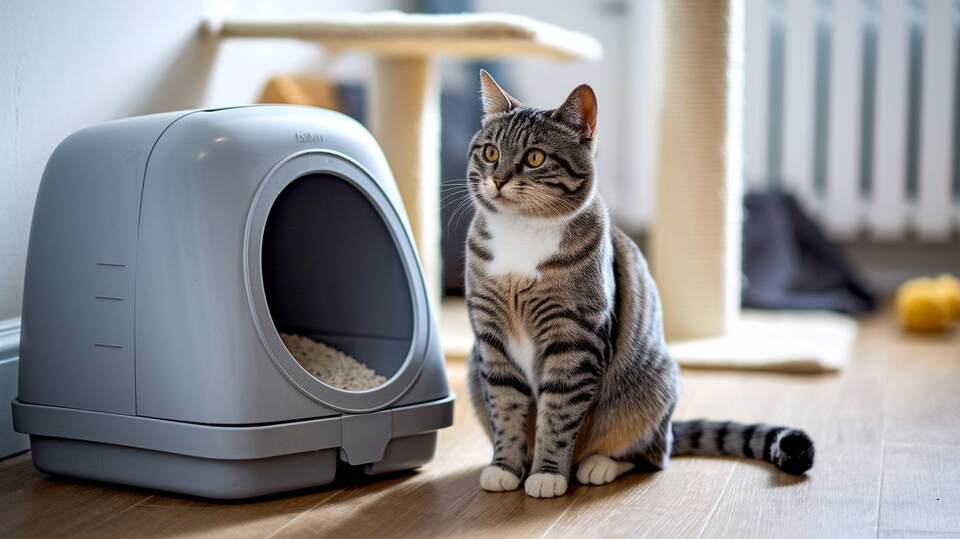
Introduction
I’ll never forget the day I decided to test whether my three cats enjoyed classical music. Armed with a carefully curated playlist of Mozart and Bach, I hit play and settled in to observe their reactions. Within minutes, my usually social tabby had retreated under the couch, my Persian was pacing anxiously by the door, and only my deaf senior cat seemed completely unbothered by my musical experiment. That moment sparked my curiosity about a question that has fascinated pet owners for decades: do cats like music?
It turns out I’m not alone in this curiosity. Spotify reports that over 71% of pet owners play music for their animals, with “music for cats” playlists receiving millions of streams annually. The pet music industry has exploded into a multi-million dollar market, complete with specialized compositions, streaming services, and even concert events designed specifically for our feline friends.
But here’s what might surprise you: most of the music we assume cats enjoy is actually designed for human ears, not feline ones. The classical music I played for my cats that day was composed in frequency ranges and rhythms that appeal to human sensory systems—systems that differ dramatically from those of our feline companions.
Recent scientific research has revolutionized our understanding of cat hearing range and musical preferences, revealing that cats’ auditory world is far more complex and different from ours than most people realize. Studies conducted at universities worldwide have shown that cats can hear frequencies up to 85,000 Hz—nearly four times higher than humans—and this enhanced hearing dramatically affects how they experience sound and music.
Cats and sound research has uncovered fascinating insights about feline auditory preferences that challenge our assumptions about what constitutes enjoyable music for cats. The findings suggest that cats may indeed enjoy certain types of music, but it’s likely not the music playing on your current playlist.
In this comprehensive exploration, we’ll dive into the groundbreaking research on feline auditory system responses to music, examine what scientists have discovered about cats’ genuine musical preferences, and provide practical guidance for creating sound environments that truly appeal to your feline companions.
Why Human Music Doesn’t Match Cat Hearing
Understanding do cats like music requires first grasping the fundamental differences between human and feline auditory systems. These differences are so significant that what sounds pleasant to us might be barely perceptible or even unpleasant to our cats.
Frequency range differences represent the most striking distinction between human and cat hearing. While humans hear sounds ranging from about 20 Hz to 20,000 Hz, cats can detect frequencies from 48 Hz up to an astounding 85,000 Hz. This means cats can hear sounds nearly four times higher in pitch than anything we can perceive. To put this in perspective, the highest note on a piano (around 4,000 Hz) is well within both human and cat hearing ranges, but cats can also hear the ultrasonic squeaks of mice, the high-frequency calls of birds, and electronic sounds that are completely silent to human ears.
How cats’ superior hearing affects music perception goes beyond simply hearing higher frequencies. Cats’ ears are incredibly sensitive to small changes in pitch, volume, and timing that humans might not even notice. This sensitivity evolved to help cats locate prey with pinpoint accuracy, even in complete darkness. When we play human music for cats, we’re essentially asking them to enjoy a sensory experience that wasn’t designed for their highly refined auditory capabilities.
Evolutionary purpose of cats’ hearing abilities explains why their auditory systems developed so differently from ours. As solitary hunters who relied on stealth and precision, cats needed to detect the faintest sounds of small prey moving through grass, leaves, or undergrowth. Their hearing evolved to excel at detecting the high-frequency sounds made by rodents and birds—sounds that are crucial for survival but completely irrelevant to human musical preferences.
Why traditional music may sound different to cats becomes clear when you consider that most human music focuses on frequencies and rhythms that match our vocal ranges, heartbeats, and natural movement patterns. Guitar strings, piano keys, and human voices all operate primarily in the frequency ranges that sound most pleasing to human ears. For cats, this music might sound muffled, incomplete, or simply boring because it lacks the high-frequency elements that capture their attention and interest.
The role of ultrasonic communication in feline species adds another layer to understanding cat auditory preferences. Many wild cats communicate using frequencies far above human hearing range. Domestic cats retain much of this ultrasonic sensitivity, even though they’ve adapted to communicate with humans through vocalizations we can hear. This means that truly appealing cat music might need to incorporate sound elements that are completely inaudible to human composers and listeners.
The implications are profound: when we play human music for cats, we may be offering them the auditory equivalent of a black-and-white movie to someone who sees in full color. The experience might not be unpleasant, but it’s certainly not optimized for their sensory capabilities.
What Scientific Studies Actually Tell Us
The question of whether cats respond to music has moved from casual observation to rigorous scientific investigation, with researchers around the world conducting controlled studies to understand feline musical preferences.
The University of Wisconsin study represents one of the most comprehensive investigations into cats’ responses to different types of music. Researchers led by Dr. Charles Snowdon exposed domestic cats to three different musical conditions: human music (classical pieces), silence, and music specifically composed for cats. The results were revealing: cats showed little interest in human music compared to their baseline behavior during silence, but they demonstrated significant positive responses to music composed specifically for feline hearing ranges.
Dr. David Teie’s groundbreaking research at the University of Maryland took a different approach by actually composing music based on scientific understanding of cat communication and hearing. Teie, a cellist and composer, created musical pieces that incorporated the frequency ranges, tempos, and sound patterns that cats naturally find appealing. His compositions included elements like purring sounds, suckling rhythms, and bird-like chirping—all integrated into musical structures that work within cats’ optimal hearing ranges.
Behavioral responses measured in laboratory settings provided objective data about cats’ musical preferences. Researchers observed and recorded various behaviors including approach and avoidance responses, relaxation indicators like lying down and closing eyes, stress signs such as hiding or pacing, and investigative behaviors like head tilting and ear positioning. These measurements revealed that cats consistently showed more positive responses to cat-specific music than to traditional human music or silence alone.
Comparison studies between human music and cat-specific compositions yielded particularly interesting results. While cats typically ignored or showed neutral responses to classical, pop, or rock music, they demonstrated clear preferences for compositions that incorporated feline-relevant sounds and frequencies. Some cats approached speakers playing cat-specific music, rubbed against them, or settled down nearby—behaviors rarely observed when human music was playing.
International research efforts have confirmed these findings across different populations of cats. Studies conducted in Europe, Asia, and North America have consistently shown that cats prefer music composed with their specific auditory capabilities in mind. Interestingly, these studies also revealed individual variations in preferences, suggesting that like humans, cats may have personal taste in music within the broader parameters of what appeals to their species.
The scientific consensus emerging from this research is clear: cats can indeed appreciate music, but it needs to be music designed for their unique sensory world rather than adaptations of human musical preferences.
Music Composed Specifically for Feline Ears
The development of music for cats represents a fascinating intersection of animal behavior science, auditory research, and musical composition. Understanding what makes music appealing to cats requires rethinking fundamental assumptions about rhythm, melody, and harmony.
Elements of effective cat music composition start with frequency considerations that go far beyond human musical ranges. Effective cat music incorporates ultrasonic elements that humans cannot hear but cats find engaging. These high-frequency components often mimic the sounds of birds, small mammals, or other environmental sounds that naturally capture cats’ attention and interest.
Frequency ranges that appeal to cats typically include both the midrange frequencies where human and cat hearing overlap and the higher frequencies that only cats can perceive. Composers creating music for cats often layer compositions with sounds ranging from 1,000 Hz up to 50,000 Hz, creating rich auditory experiences that engage cats’ full hearing capabilities.
Incorporation of purring and suckling sounds reflects cats’ positive associations with these comforting experiences from kittenhood. Research shows that cats respond positively to rhythms that match the tempo of purring (around 25-50 cycles per minute) and to sounds that mimic the nursing experience. These elements trigger deep-seated comfort responses that can help cats relax and feel secure.
Tempo considerations based on cat physiology take into account cats’ faster heart rates and metabolic rhythms compared to humans. While human music often follows tempos that match our walking pace or heartbeat (around 60-120 beats per minute), effective cat music may use faster tempos that align with feline physiological rhythms, typically ranging from 120-240 beats per minute.
Commercial cat music products have emerged from this research, offering cat owners scientifically-designed musical options. Products like “Music for Cats” by David Teie and various streaming playlists specifically created for felines provide accessible ways for cat owners to test their pets’ musical preferences. These products typically cost between $10-30 and are available through major music streaming platforms and specialized pet product retailers.
Effectiveness of cat-specific music varies among individual cats, but studies suggest that 70-80% of cats show some positive response to properly composed feline music, compared to only 10-15% showing interest in traditional human music. This dramatic difference underscores the importance of species-appropriate musical composition for engaging feline listeners.
How Cats Respond to Various Types of Music
Research into feline music studies has revealed fascinating patterns in how cats respond to different musical genres and styles, providing insights that go far beyond simple preference to actual physiological and behavioral impacts.
The Calming Effect of Classical Compositions

Classical music and cats research has produced some of the most consistent findings in feline musical preference studies. Multiple investigations have shown that certain types of classical music can have measurably calming effects on cats, particularly pieces with slower tempos, consistent rhythms, and minimal sudden changes in volume or instrumentation.
Specific composers and pieces that consistently produce positive responses in cats include baroque compositions by Bach, particularly pieces with steady, mathematical rhythms that seem to appeal to feline sensibilities. Mozart’s more structured pieces also show positive effects, though his more playful and dynamic compositions sometimes cause overstimulation in sensitive cats.
Stress reduction benefits from appropriate classical music have been documented in veterinary settings, where playing gentle classical pieces during examinations and procedures can help reduce cats’ anxiety levels. Some veterinary clinics now routinely play specific classical pieces to help create calmer environments for both cats and their owners.
Volume and instrumentation considerations matter significantly when playing classical music for cats. String instruments playing in midrange frequencies tend to be most appealing, while pieces featuring loud percussion, brass instruments, or dramatic dynamic changes often cause stress rather than relaxation. The optimal volume level is typically much lower than humans prefer—just barely audible to human ears often provides the right level for feline comfort.
High Energy Music and Feline Stress

Modern pop and rock music generally produces negative responses in cats, with research consistently showing increased stress indicators when cats are exposed to high-energy, loud, or rhythmically complex music. These genres often feature elements that directly conflict with cats’ preferences for predictable, gentle sounds.
Studies on increased agitation reveal that cats exposed to rock, heavy metal, or electronic dance music show elevated stress hormones, increased heart rates, and behavioral signs of anxiety including pacing, hiding, and decreased appetite. These responses suggest that high-energy human music may actually be harmful to cats’ well-being when played regularly or at high volumes.
Impact of electronic elements in modern music appears particularly problematic for cats. Synthesized sounds, heavy bass lines, and electronic effects often include frequencies and distortions that cats find uncomfortable or alarming. The artificial nature of many electronic sounds may trigger stress responses that evolved to help cats identify and avoid potential dangers.
Bass frequencies and loud volumes can be physically uncomfortable for cats due to their sensitive hearing. What humans experience as energizing bass lines, cats may perceive as overwhelming sensory assault. Research suggests that sustained exposure to loud, bass-heavy music can cause lasting stress and even hearing damage in cats.
Environmental Sounds Cats Naturally Enjoy
Nature sounds and ambient music represent the category most likely to appeal to cats while also being pleasant for human listeners. Recordings of natural environments often contain the types of sounds that cats find engaging without being overstimulating.
Bird songs and water sounds frequently capture cats’ interest due to their evolutionary significance as prey indicators or territorial markers. However, these sounds need to be presented at appropriate volumes—loud bird recordings can cause hunting frustration in indoor cats who cannot act on their prey drive.
White noise and ambient soundscapes can provide gentle auditory enrichment that masks household noises without overwhelming cats’ sensitive hearing. These sounds can be particularly helpful for anxious cats or in households with multiple pets where sound management is important for maintaining peace.
Creating peaceful soundscapes involves layering gentle nature sounds with minimal variation in volume or rhythm. The most effective ambient music for cats maintains consistent, predictable patterns that provide comfort without demanding attention or triggering alertness responses.
Individual Cat Preferences and Personality Factors
Just as humans have individual musical tastes, research reveals that individual cat preferences for music vary significantly based on factors including age, breed, personality, and early life experiences.
Age-related differences in musical preferences show distinct patterns across cats’ lifespans. Kittens often respond positively to higher-pitched sounds that mimic their mother’s vocalizations, while senior cats may prefer gentler, lower-volume music due to age-related hearing changes. Adult cats typically show the most varied individual preferences, with some preferring stimulating sounds and others gravitating toward calming compositions.
Breed variations in sound sensitivity reflect the diverse evolutionary backgrounds of different cat breeds. Oriental breeds like Siamese and Oriental Shorthairs often show greater interest in interactive sounds and may enjoy more complex musical compositions. Persian and other flat-faced breeds may be more sensitive to volume due to their facial structure’s impact on hearing. Maine Coons and other large breeds sometimes show preferences for deeper tones that match their larger vocal ranges.
Personality traits affecting music enjoyment create perhaps the most significant variations in feline musical preferences. Confident, outgoing cats often enjoy a wider variety of sounds and may even seem to “dance” or play in response to certain music. Anxious or shy cats typically prefer very gentle, predictable sounds or may be most comfortable with silence. Highly active cats sometimes respond positively to faster-tempo music that matches their energy levels.
Early socialization experiences with music and household sounds significantly influence adult cats’ musical tolerances and preferences. Cats exposed to various sounds during their critical socialization period (2-7 weeks of age) typically show greater acceptance of musical variety throughout their lives. Cats from quiet environments may be more easily overstimulated by any type of music.
Indoor versus outdoor exposure also shapes musical preferences. Cats with outdoor experience often show greater interest in nature sounds and may be more tolerant of volume variations that mimic outdoor acoustic environments. Strictly indoor cats may be more sensitive to sudden sounds but might also be more responsive to gentle musical enrichment.
How to Use Music Therapeutically for Cats
Understanding how to apply calming music for cats in practical situations can significantly improve feline well-being and help address various behavioral and health challenges.
Reducing anxiety during veterinary visits represents one of the most documented therapeutic applications of cat music. Many veterinary clinics now play specifically composed cat music in waiting areas and examination rooms, with studies showing measurable reductions in cats’ stress indicators including heart rate, respiratory rate, and cortisol levels.
Helping cats adjust to new environments can be significantly enhanced through appropriate musical support. When moving to new homes or introducing cats to unfamiliar spaces, playing gentle, familiar music can provide comfort and continuity. The key is using music that cats have previously associated with safety and relaxation rather than introducing new sounds during already stressful transitions.
Music for separation anxiety shows promising results in helping cats cope with their owners’ absence. Some cats who experience distress when left alone show reduced anxiety symptoms when calm, species-appropriate music is played during separation periods. However, this approach works best when combined with other anxiety-reduction strategies and should never replace addressing underlying separation anxiety through behavioral modification.
Creating calm atmospheres during grooming, nail trimming, or medication administration can make these necessary but potentially stressful activities more tolerable for cats. Playing soft, familiar music before and during these activities can help maintain lower stress levels and create positive associations with routine care.
Volume guidelines and speaker placement are crucial for therapeutic music applications. Music should be played at barely audible levels from the human perspective—if you can clearly hear it, it’s likely too loud for cats. Speakers should be positioned to avoid creating sound “hot spots” where cats might feel trapped by overwhelming audio input. Multiple small speakers providing gentle background sound work better than single loud sources.
The therapeutic use of music for cats shows the most success when integrated into comprehensive wellness approaches that address cats’ physical, environmental, and emotional needs rather than relying on music alone to solve behavioral or health issues.
Reading Your Cat’s Musical Preferences
Learning to interpret your cat’s responses to different types of music helps you customize their auditory environment for maximum comfort and enjoyment.
Body language indicators of musical enjoyment include relaxed posture with loose, comfortable positioning, slow blinking or peaceful closed eyes, gentle purring or soft vocalizations, and approaching or settling near music sources. Some cats show interest through head tilting, ear positioning toward speakers, or investigative behaviors like sniffing around sound sources.
Stress signals indicating musical discomfort are equally important to recognize and include flattened ears, dilated pupils, tense body posture, pacing or restless movement, hiding or seeking escape routes, excessive grooming or displacement behaviors, and changes in appetite or litter box usage that coincide with music exposure.
Behavioral changes in response to different sounds help identify individual preferences and sensitivities. Some cats become more active and playful with certain music, while others become calmer and more relaxed. Negative responses might include avoiding areas where music is playing, showing signs of anxiety or agitation, or displaying aggressive behaviors that coincide with specific sounds.
How cats show interest versus avoidance provides clear guidance for musical selection. Interest behaviors include moving closer to sound sources, remaining in rooms where music is playing, showing relaxed alertness rather than fearful vigilance, and maintaining normal routines and activities. Avoidance behaviors include leaving rooms when music starts, hiding in areas away from speakers, showing signs of stress that correlate with music timing, and disrupted sleep or eating patterns during musical sessions.
Documenting your cat’s musical preferences helps identify patterns and optimize their auditory environment. Keep simple notes about which types of music elicit positive responses, what volume levels work best, which times of day your cat seems most receptive to music, and any negative reactions to avoid in the future.
When Cats Prefer Peace and Quiet
Despite research showing that cats can enjoy certain types of music, it’s crucial to understand that cats and silence have an equally important relationship that shouldn’t be overlooked in our enthusiasm for musical enrichment.
Natural feline sleep patterns involve 12-16 hours of rest daily, much of which occurs during daytime hours when households are typically most active. During these sleep periods, cats often prefer quiet environments that allow for deep, restorative rest. Constant background music, even cat-friendly compositions, can interfere with natural sleep cycles and contribute to chronic stress.
Overstimulation risks from continuous musical input are real concerns for cats’ sensitive auditory systems. Just as humans can experience fatigue from constant background noise, cats can become overwhelmed by persistent auditory stimulation. Signs of overstimulation include restlessness, decreased appetite, changes in grooming habits, and increased hiding or avoidance behaviors.
Creating quiet spaces for sensitive cats becomes especially important in households that regularly use music or have high ambient noise levels. Designating certain areas as sound-free zones allows cats to retreat when they need auditory rest. These quiet spaces should include comfortable sleeping areas, access to food and water, and litter box access without requiring cats to traverse noisy areas.
Balancing stimulation with peaceful environments requires understanding each cat’s individual tolerance for auditory input. While some cats may enjoy several hours of gentle background music daily, others may prefer just occasional short musical sessions or may be most comfortable with natural household sounds rather than added musical elements.
The key is recognizing that silence itself can be a form of environmental enrichment for cats, providing the peaceful conditions they need for optimal rest, stress recovery, and natural behavioral patterns.
Tailoring Music to Your Cat’s Needs
Different life stages and circumstances call for customized approaches to do cats like music applications that consider cats’ changing needs and sensitivities.
Kitten development and gentle sound exposure during the critical socialization period can influence lifelong attitudes toward music and environmental sounds. Young kittens benefit from gradual introduction to various gentle sounds, including soft music, which can help them develop confidence and adaptability. However, volume levels should be kept very low, and exposure should be brief and positive.
Senior cats and hearing changes require special consideration as age-related hearing loss affects how cats perceive and respond to music. Some senior cats may need slightly higher volumes to perceive music, while others may become more sensitive to certain frequencies. Gentle, familiar sounds often work best for elderly cats, providing comfort without causing confusion or stress.
Sick or recovering cats may have altered responses to music depending on their condition and medications. Cats recovering from illness or surgery often benefit from very quiet environments, though gentle, familiar music may provide comfort during recovery periods. Always consult with veterinarians about appropriate environmental conditions during medical treatment.
Multi-cat household dynamics complicate musical selection since different cats may have conflicting preferences. In these situations, finding music that’s neutral or mildly positive for all cats, or rotating between different types of music, may work better than trying to accommodate dramatically different preferences simultaneously.
Travel and relocation stress situations may benefit from familiar musical comfort, but introducing new music during already stressful transitions can backfire. If music is used during travel or moves, it should be music the cats have previously associated with calm, safe environments rather than new compositions that add to their sensory overload.
Conclusion
The question do cats like music has a nuanced answer that depends heavily on the type of music, individual cat preferences, and how music is integrated into cats’ overall environment. Scientific research clearly demonstrates that cats can indeed appreciate musical experiences, but these experiences need to be designed for feline sensory systems rather than human musical traditions.
The most important findings from current research emphasize that cats respond most positively to music composed specifically for their unique hearing ranges and natural sound preferences. While cats generally show little interest in human music genres like classical, pop, or rock, they can demonstrate clear preferences for compositions that incorporate feline-relevant frequencies, rhythms, and sound patterns.
Individual variation plays a crucial role in feline musical preferences, with factors like age, breed, personality, and early socialization experiences all influencing how cats respond to different types of auditory stimulation. This means that successful musical enrichment for cats requires careful observation and customization rather than assuming all cats will respond similarly to any particular type of music.
Perhaps most importantly, research reveals that cats’ need for silence and quiet environments is just as significant as their potential enjoyment of appropriate music. The key to successfully incorporating music into cats’ lives lies in understanding when to provide gentle auditory enrichment and when to respect their need for peaceful, quiet spaces.
For cat parents interested in exploring musical enrichment, the evidence supports starting with scientifically-designed cat music, keeping volumes very low, observing individual responses carefully, and maintaining plenty of quiet spaces for cats who prefer silence. The goal should be enhancing cats’ environmental richness rather than imposing human musical preferences on feline companions.
As research in this field continues to evolve, we’re likely to develop even more sophisticated understanding of how music can positively contribute to feline well-being, always with the caveat that individual cats’ preferences and comfort should guide our choices rather than our own musical enthusiasms.
Also Read - Why Do Cats Cover Their Food? Understanding the Curious Instinct Behind the Behavior
FAQs About Do Cats Like Music
Do all cats react the same way to music?
No, cats show significant individual variation in their musical preferences. Factors like age, breed, personality, and early socialization experiences all influence how cats respond to music. Some cats may show clear preferences for certain types of music, while others prefer silence. It’s important to observe your individual cat’s responses rather than assuming all cats will react similarly.
Can playing music help anxious cats?
Appropriately chosen music can help reduce anxiety in some cats, particularly music composed specifically for feline hearing ranges with gentle tempos and familiar sound patterns. However, music should supplement other anxiety-reduction strategies rather than replace behavioral modification or veterinary treatment for severe anxiety. Some anxious cats actually prefer quiet environments over any type of music.
What volume should I play music for my cat?
Music for cats should be played at very low volumes—barely audible to human ears is often the appropriate level for feline comfort. Cats’ hearing is much more sensitive than humans’, so what seems like a pleasant volume to us can be overwhelming for them. Start with the lowest possible volume and only increase slightly if your cat shows positive interest.
Is it okay to leave music on for cats all day?
Continuous music isn’t recommended for cats, as they need quiet periods for proper rest and stress recovery. Even cat-specific music should be used intermittently rather than constantly. Cats naturally sleep 12-16 hours per day and often prefer quiet environments during rest periods. Consider playing music for 1-2 hour sessions with plenty of silent time between.
Do cats prefer instrumental or vocal music?
Research suggests cats generally respond better to instrumental music, particularly compositions that incorporate sounds similar to feline vocalizations, purring, or bird songs. Human vocal music may be less appealing because it focuses on frequency ranges optimized for human communication rather than feline hearing preferences. However, individual cats may show unique preferences.
Can deaf cats still enjoy music through vibrations?
Deaf cats may respond to strong bass vibrations or rhythmic patterns they can feel, but they miss the majority of what makes music appealing to hearing cats. Visual stimulation, tactile experiences, and scent-based enrichment are generally more effective for deaf cats than musical interventions. However, some deaf cats may enjoy the vibrations from speakers placed on surfaces they frequent.
Does the age of my cat affect their music preferences?
Yes, age significantly influences cats’ musical responses. Kittens often prefer higher-pitched sounds similar to maternal vocalizations, adult cats show the most individual variation in preferences, and senior cats may need adjusted volumes due to hearing changes. Older cats often prefer gentler, more predictable sounds, while younger cats might tolerate more variety.
Should I play music during my cat’s sleep time?
Generally, cats prefer quiet environments during sleep periods. Continuous music during rest times can interfere with deep sleep and contribute to chronic stress. If you choose to play music while cats are sleeping, it should be extremely quiet and consist of very gentle, predictable sounds. Many cats sleep better in complete silence.
Can music help with litter box training or behavioral issues?
Music alone won’t solve behavioral problems like litter box avoidance, but appropriate background music might help create calmer environments that support behavioral modification efforts. However, address underlying causes of behavioral issues through proper veterinary evaluation and behavioral counseling rather than relying on music as a primary solution.
What are the signs that my cat is stressed by music?
Signs of musical stress include leaving the room when music starts, hiding or seeking escape routes, flattened ears or dilated pupils, restless pacing or agitation, changes in eating or litter box habits that correlate with music timing, and increased vocalization or aggressive behaviors. If you notice these signs, reduce volume, change music type, or provide quiet alternatives.




